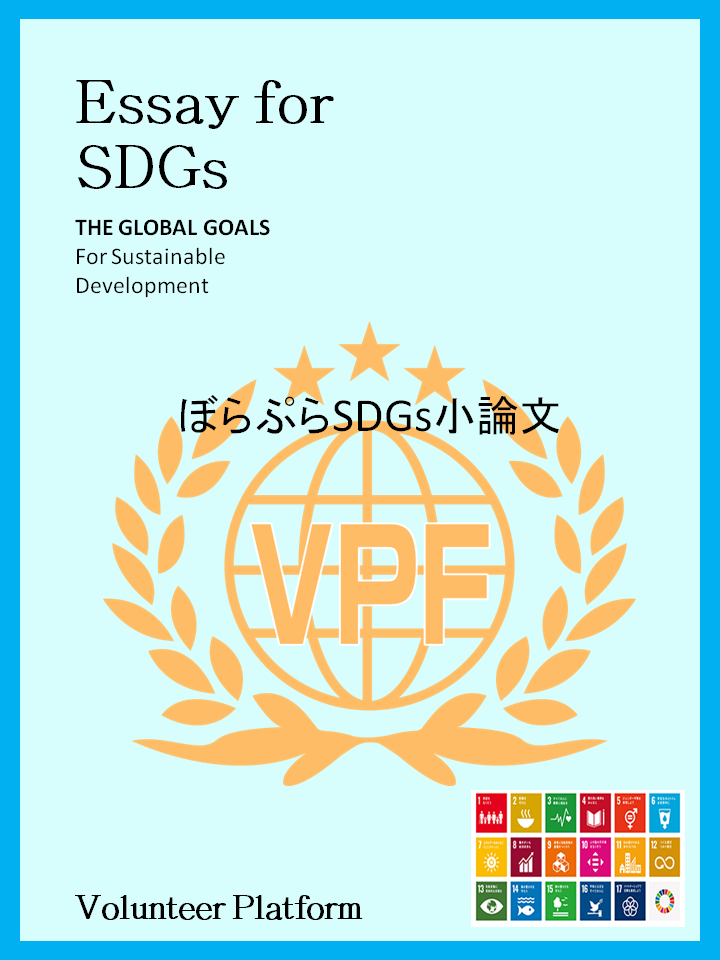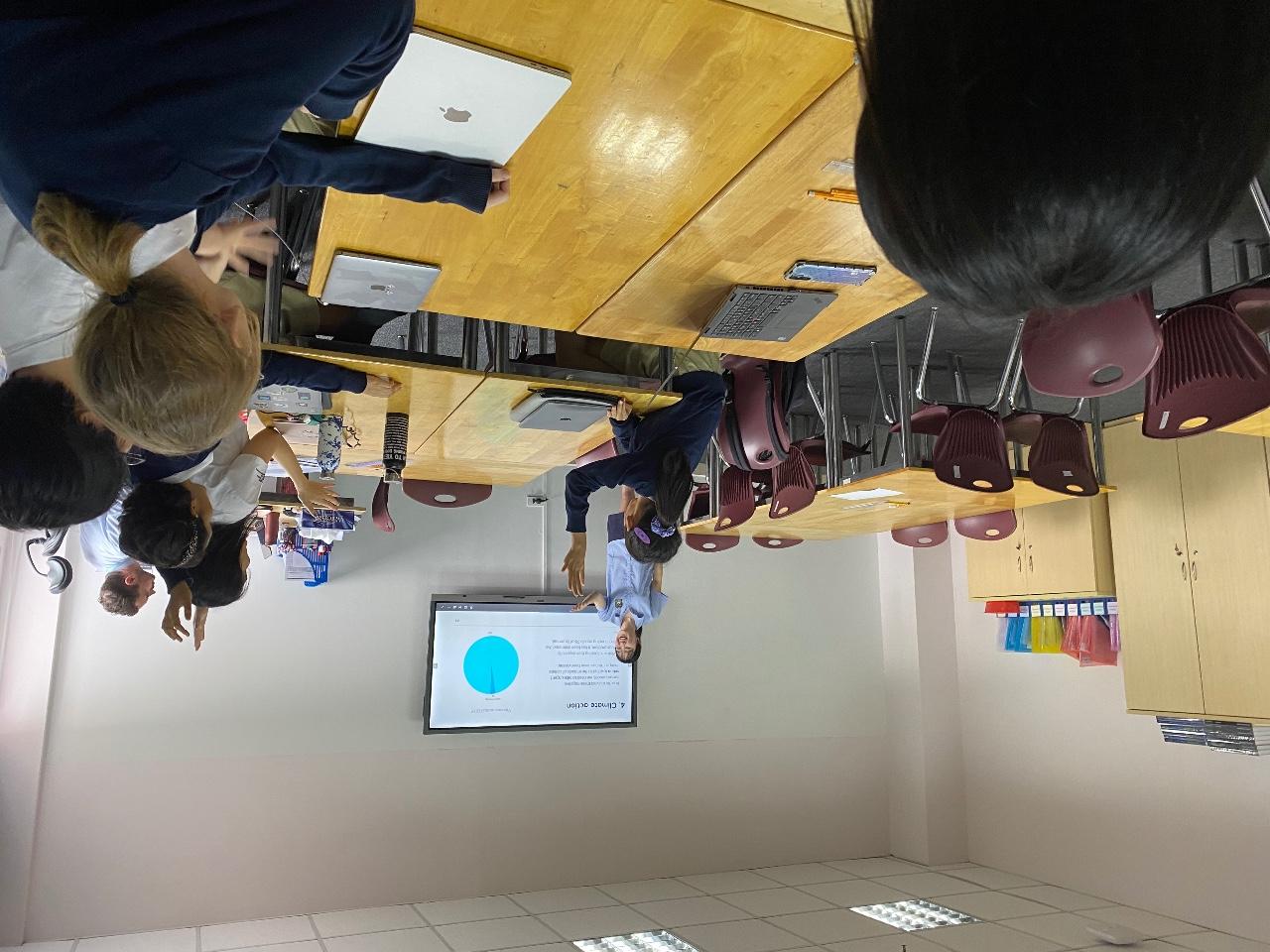[ぼらぷらSDGs小論文]

『Small things add up to make a notable difference』
プレゼン資料
※動画内のスライドが見にくい方は、こちらをご確認ください
小論文
『Small things add up to make a notable difference』
Nowadays, climate change has been our common topic of conversation in a variety of locations, such as in school, homes and even among groups of friends. How many of you have felt an extreme temperature these days and immediately had the words “global warming” pop up in your head? I assume most of you have, including me. It is associated with one of the SDGs goals which is #13, “Climate Action” and I strongly believe that this goal is supposed to be the priority to achieve, in order to protect our planet in the long-term.
I suppose we would never fully achieve other global goals unless we deal with climate change, which is caused by enhanced greenhouse gas effects, or mitigate its impacts, as it has simultaneously been worsening numerous issues around the world.
In terms of environment, climate change increases the frequency and intensity of extreme weather events, such as droughts and floods. They often occur in tropical and dry regions like Southeast Asia and North Africa in which many low-income people tend to live. This could ultimately result in even greater amplification of disparities as homes may be destroyed and its inhabitants may be forced to be displaced, which will require additional expenses and consequently prevent SDGs goal 1 “No Poverty” from being achieved. Furthermore, this extreme weather negatively affects the regions’ agriculture, which is often a main source of earnings for low-income people. People with inadequate income may experience food storage due to less availability of food (goal 2 “Zero Hunger”) which could lead to a weaker immune system and poor health (goal 3 “Good Health and Well-being”). In addition, they might not be able to afford their children’s school fees (goal 4 “Quality Education”). Not only humans, but also other animals and organisms’ habitats may be lost as well, leading to less biodiversity on earth (goal 15 “Life on Land”). This chain of events would downgrade the overall quality of life. Therefore, climate change could potentially exacerbate the deterioration of vulnerable people’s lives and discourage the achievement of several SDGs goals.
Now, here’s a question. Who is to blame for the enhanced greenhouse effect?
It is a controversial topic, but I think some of you simply thought of the countries that produce a vast amount of CO₂ such as China and the US, because they have a lot of factories for manufacturing. In particular, China emits 30% of the world’s total emissions due to its abundant use of coal. However, is it correct to say that only these countries are at fault for it? Contemplating it from different perspectives was very helpful to evaluate my own idea this time. I rechecked the information in the training material (研修資料) about Japan’s self-sufficiency rate on food and goods. It is illustrated that 75.1% of Japan’s shoes and 81.3% of its bags are imported from China, and various foods are imported from different countries. This indicates that it is too simple to just look at the aspect of a country's total emission, as countries like China produce and ship products to other countries like Japan, which is highly reliant on those imported goods. We are the ones who partly create the huge demand for these goods. It means that our individuals’ needs and wants have been causing a huge issue in the world.
In conclusion, all individuals are responsible for their climate change action. It is not yet too late to stop climate change, so we should all start being concerned about it right now and work together. Just by changing a small action in our daily lives, like using eco-friendly bags for shopping, will eventually add up and could result in making someone in the world happy. I found that learning about these SDGs was an incredibly valuable opportunity for me to be more conscious of and more proactive in respecting and following the SDGs
発表会の様子

オンライン研修を受講した感想
総合的な満足度
大変満足

受講前の気持ち
SDGsについて学びたい、人の役に立ちたい、将来の進路に活かしたい、社会問題に興味がある
受講後の気持ち
一生モノの学びになった!
すごく良かった!
視野が広がった!
勉強になった!
いい経験になった!
SDGsについて行動したくなった!
SDGsを自分ゴトとして捉えられるようになった!
LIVEボランティアが楽しかった!
研修を受講した理由を教えて下さい
e-ラーニングでSDGsに関する知識を蓄えた後に、実際にカンボジアの子供たちとのコミュニケーションをとることで経験まで積めるというプログラムに魅力を感じたから。
研修を受講した感想は?
自分がこれから、SDGsとどのように向き合っていくかを考える貴重な経験になりました。自分ひとりでは世界の状況を変えることができないという狭い視野で考えていた始めとは異なり、自分ひとりだからこそできることにフォーカスをおくことができるようになりました!
今後、今回の経験をどのように活かしていきたいですか?
今回得た知識を用いて実際に発展途上国に行き、貧困などの問題を抱えている人たちの支えとなりたい。
これから受講される方へアドバイスお願いします!
カンボジアの生徒たちとの交流は一生ものになります!





 LINE相談
LINE相談
